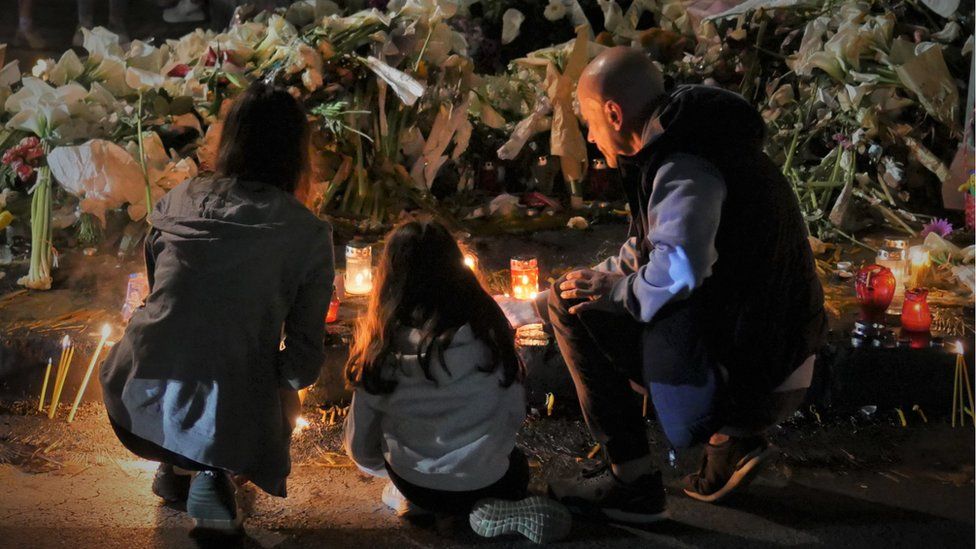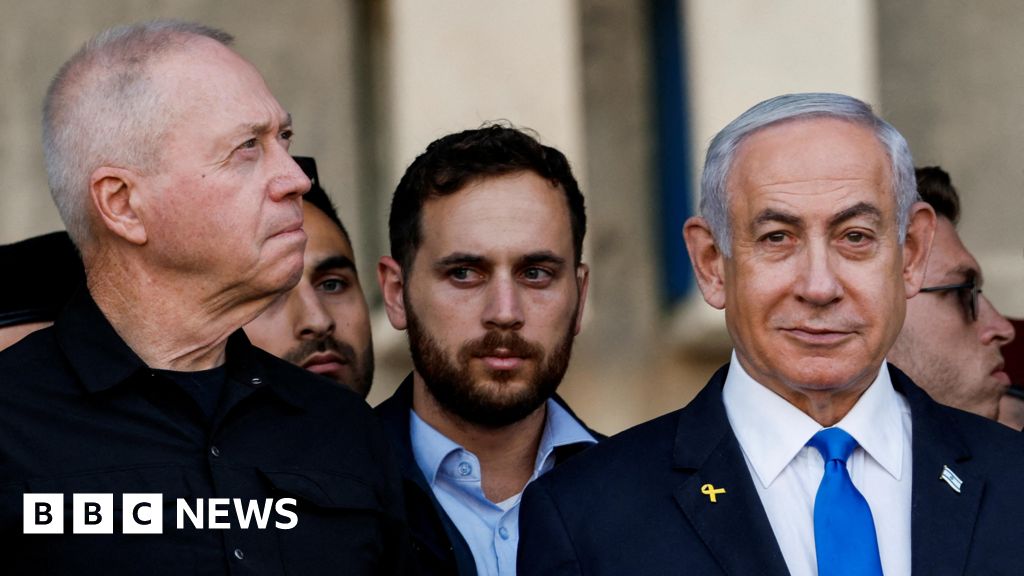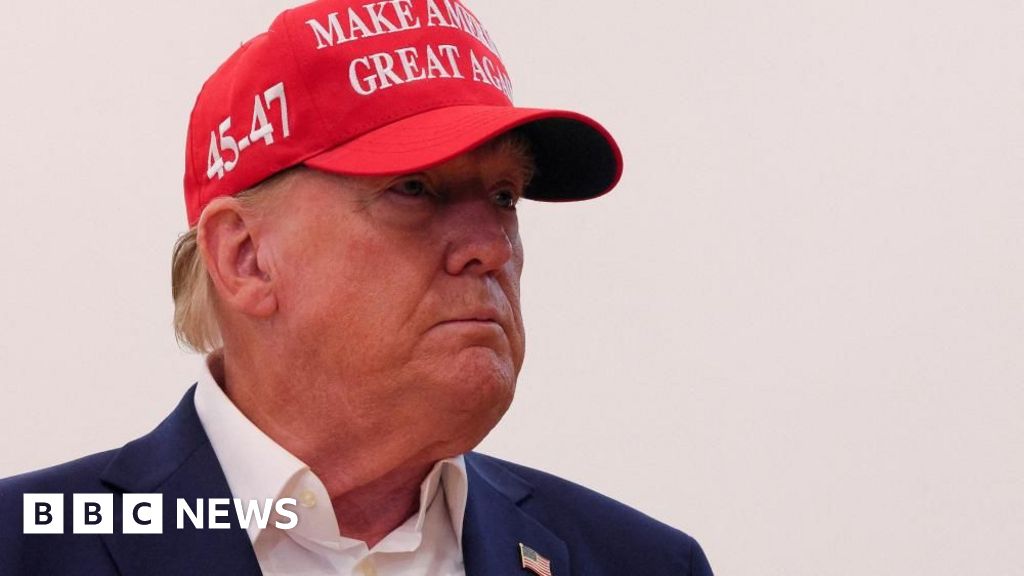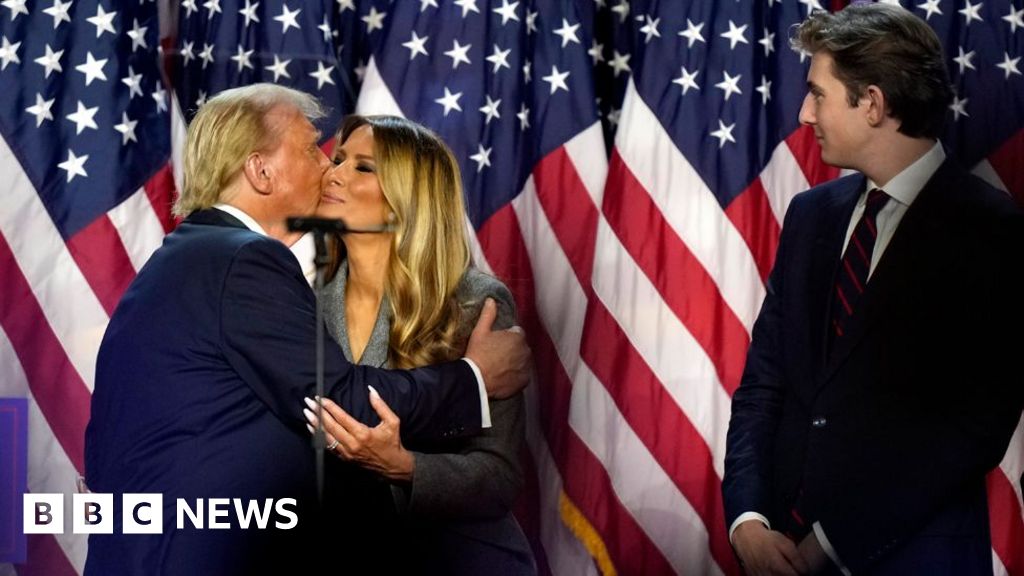ARTICLE AD BOX

People have been paying tribute to the victims since Wednesday
By Guy De Launey
BBC News, Belgrade
The aroma of burning wax wafts up the tree-lined slope of Svetozar Markovic Street in Belgrade's central Vracar district. Eventually, the source of the scent comes into view: votive candles, set against a wall of white flowers.
The illuminated tributes stretch around much of the perimeter of Vladislav Ribnikar Primary School and the neighbouring high school.
On the barriers in front of the main entrance, there are pictures of the eight children who died in Wednesday's shooting, along with handwritten messages from friends and family.
Three girls sit on the pavement, silently holding each other. A little way down the road, a father talks quietly to his three daughters as they lay flowers. There are scores of people at the scene, with a steady flow of arrivals and departures, but there is no buzz - only a hush.
The contrast to my last visit to Vladislav Ribnikar could hardly be greater. In 2013, I filmed traditional slava celebrations at the school, a joyous occasion paying tribute to St Sava through song, dance and drama.
Now on the weekend of one of Serbia's biggest celebrations - the slava for St George - the country is in mourning. Not just for those who died on Wednesday, but the victims of another mass shooting near Mladenovac on Thursday.
There is also a sense of mourning for Serbia as people had understood it. In this country, schools had been safe and gun crime rare. Now, the two mass shootings have rocked Serbians' long-held beliefs about their society.
"Part of the shock is because no-one believed it could happen here," says graphic designer Ana Djordjevic. She has a 14-year-old son, and her niece is a pupil at Vladislav Ribnikar.
"My son told me he doesn't feel safe in school or on the street anymore, and that he cannot fall asleep. We need to give them time and space to process it and heal - and the teachers too."
For most Serbians, business as usual has been out of the question. "Belgrade never sleeps" is usually a proud boast about the city's proclivity for partying. This weekend, the mood is palpably subdued.
Waiter Voja Cekic says the recent mass shootings have made people in Belgrade afraid
"You can feel the strange atmosphere - people are sitting with no music or laughter. If it wasn't for foreign customers, we would have very little business," says Voja Cekic, a waiter at a popular bar and restaurant in Belgrade's Old Town.
Voja then reveals that he has a gun at home - a legally licensed Beretta pistol that his grandfather carried when he fought with the Partisans in World War Two.
"I keep it as a memento of my grandfather," he says. "Perhaps it could be deactivated, so I could just have it as a souvenir. But many people in Serbia have illegal guns."
The question of whether Serbia has a gun problem has been a hot topic following the shootings. A 2018 survey by the Switzerland-based Small Arms Survey suggested that Serbia had the third-highest rate of civilian gun ownership in the world, behind only Yemen and the United States.
The Belgrade Centre for Security Policy's deputy director, Bojan Elek, describes the Survey's figure of 39 guns per 100 residents as "a wild overestimate". But he believes the government's proposals for "disarmament" in the wake of the shootings will be well-received - initially, at least.
"People are still shocked and they want the government to do something. But eventually, people who legally own weapons will be angry because they will feel they didn't do anything wrong."
Some official reactions to the shootings have caused unease, such as Education Minister Branko Ruzic identifying "Western values" as an underlying cause. This seems at odds with Serbia's long-stated ambition to join the European Union.
Zvezdana Kovac is the Secretary General of the European Movement in Serbia
"Accusing Western values was very shocking," says Zvezdana Kovac, Secretary General of the European Movement in Serbia, which campaigns for EU membership.
"If one honestly wants to join the EU, one cannot say such words," she says. "It is unacceptable for a serious government to misuse such an event for political purposes."
Serbian President Aleksandar Vucic has responded swiftly to the shootings. As well as proposing a crackdown on weapons, he also suggests ensuring that a police officer is on duty at every school, and the lowering of the age of criminal responsibility from 14 to 12.
But opposition parties are unimpressed. They will march through Belgrade on Monday, protesting against what they view as an attempt by the government to bring in oppressive measures while people are still stunned by the shootings.
"We don't need more police in schools," says Dobrica Veselinovic from the green-left movement, Ne Davimo Beograd.
"We need more psychologists, more education and an honest talk with ourselves about our position in the world and our relationship with the past. Without that, we will be stuck - we have 30 years of violent history and wars, which we have not processed."
For the moment, processing the events of the past few days is challenge enough. Serbia today feels a very different place to a week ago.
Watch: Belgrade shooting suspect arrested by police

 1 year ago
13
1 year ago
13








 English (US)
English (US)